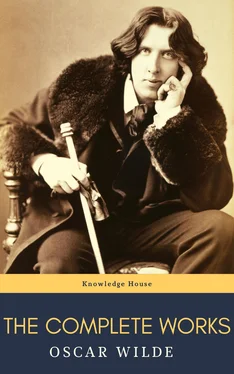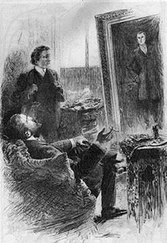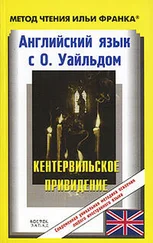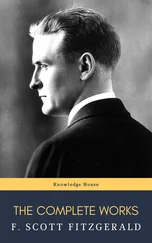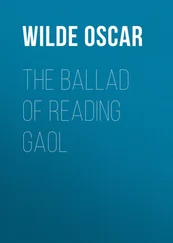duchess
It is too late.
a voice outside
Room for the headsman.
duchess [ sinks down ]
Oh!
[ The Headsman with his axe on his shoulder is seen passing the corridor, followed by Monks bearing candles .]
guido
Farewell, dear love, for I must drink this poison.
I do not fear the headsman, but I would die
·174· Not on the lonely scaffold.
But here,
Here in thine arms, kissing thy mouth: farewell!
[ Goes to the table and takes the goblet up .] What, art thou empty?
[ Throws it to the ground .]
O thou churlish gaoler,
Even of poisons niggard!
duchess [ faintly ]
Blame him not.
guido
O God! you have not drunk it, Beatrice?
Tell me you have not?
duchess
Were I to deny it,
There is a fire eating at my heart
Which would find utterance.
guido
O treacherous love,
Why have you not left a drop for me?
duchess
No, no, it held but death enough for one.
·175· guido
Is there no poison still upon your lips,
That I may draw it from them?
duchess
Why should you die?
You have not spilt blood, and so need not die:
I have spilt blood, and therefore I must die.
Was it not said blood should be spilt for blood?
Who said that? I forget.
guido
Tarry for me,
Our souls will go together.
duchess
Nay, you must live.
There are many other women in the world
Who will love you, and not murder for your sake.
guido
I love you only.
duchess
You need not die for that.
·176· guido
Ah, if we die together, love, why then
Can we not lie together in one grave?
duchess
A grave is but a narrow wedding-bed.
guido
It is enough for us
duchess
And they will strew it
With a stark winding-sheet, and bitter herbs:
I think there are no roses in the grave,
Or if there are, they all are withered now
Since my Lord went there.
guido
Ah! dear Beatrice,
Your lips are roses that death cannot wither.
duchess
Nay, if we lie together, will not my lips
Fall into dust, and your enamoured eyes
Shrivel to sightless sockets, and the worms,
Which are our groomsmen, eat away your heart?
·177· guido
I do not care: Death has no power on love.
And so by Love’s immortal sovereignty
I will die with you.
duchess
But the grave is black,
And the pit black, so I must go before
To light the candles for your coming hither.
No, no, I will not die, I will not die.
Love, you are strong, and young, and very brave;
Stand between me and the angel of death,
And wrestle with him for me.
[ Thrusts Guido in front of her with his back to the audience .]
I will kiss you,
When you have thrown him. Oh, have you no cordial,
To stay the workings of this poison in me?
Are there no rivers left in Italy
That you will not fetch me one cup of water
To quench this fire?
guido
O God!
·178· duchess
You did not tell me
There was a drought in Italy, and no water:
Nothing but fire.
guido
O Love!
duchess
Send for a leech,
Not him who stanched my husband, but another
We have no time: send for a leech, I say:
There is an antidote against each poison,
And he will sell it if we give him money.
Tell him that I will give him Padua,
For one short hour of life: I will not die.
Oh, I am sick to death: no, do not touch me,
This poison gnaws my heart: I did not know
It was such pain to die: I thought that life
Had taken all the agonies to itself;
It seems it is not so.
guido
O damnéd stars
Quench your vile cresset-lights in tears, and bid
The moon, your mistress, shine no more to-night.
·179· duchess
Guido, why are we here? I think this room
Is poorly furnished for a marriage chamber.
Let us get hence at once. Where are the horses?
We should be on our way to Venice now.
How cold the night is! We must ride faster.
[ The Monks begin to chant outside .]
Music! It should be merrier; but grief
Is of the fashion now—I know not why.
You must not weep: do we not love each other?—
That is enough. Death, what do you here?
You were not bidden to this table, sir;
Away, we have no need of you: I tell you
It was in wine I pledged you, not in poison.
They lied who told you that I drank your poison.
It was spilt upon the ground, like my Lord’s blood;
You came too late.
guido
Sweet, there is nothing there:
These things are only unreal shadows.
·180· duchess
Death,
Why do you tarry, get to the upper chamber;
The cold meats of my husband’s funeral feast
Are set for you; this is a wedding feast.
You are out of place, sir; and, besides, ’tis summer.
We do not need these heavy fires now,
You scorch us.
Oh, I am burned up,
Can you do nothing? Water, give me water,
Or else more poison. No: I feel no pain—
Is it not curious I should feel no pain?—
And Death has gone away, I am glad of that.
I thought he meant to part us. Tell me, Guido,
Are you not sorry that you ever saw me?
guido
I swear I would not have lived otherwise.
Why, in this dull and common world of ours
Men have died looking for such moments as this
And have not found them.
·181· duchess
Then you are not sorry?
How strange that seems.
guido
What, Beatrice, have I not
Stood face to face with beauty? That is enough
For one man’s life. Why, love, I could be merry;
I have been often sadder at a feast,
But who were sad at such a feast as this
When Love and Death are both our cup-bearers?
We love and die together.
duchess
Oh, I have been
Guilty beyond all women, and indeed
Beyond all women punished. Do you think—
No, that could not be—Oh, do you think that love
Can wipe the bloody stain from off my hands,
Pour balm into my wounds, heal up my hurts,
And wash my scarlet sins as white as snow?—
For I have sinned.
·182· guido
They do not sin at all
Who sin for love.
duchess
No, I have sinned, and yet
Perchance my sin will be forgiven me.
I have loved much
[ They kiss each other now for the first time in this Act, when suddenly the Duchess leaps up in the dreadful spasm of death, tears in agony at her dress, and finally, with face twisted and distorted with pain, falls back dead in a chair. Guido seizing her dagger from her belt, kills himself; and, as he falls across her knees, clutches at the cloak which is on the back of the chair, and throws it entirely over her. There is a little pause. Then down the passage comes the tramp of Soldiers; the door is opened, and the Lord Justice, the Headsman, and the Guard enter and see this figure shrouded in black, and Guido lying dead across her. The Lord Justice rushes ·183· forward and drags the cloak off the Duchess, whose face is now the marble image of peace, the sign of God’s forgiveness .]
Tableau
Curtain
A Play about a Good Woman
by
Oscar Wilde
London: Elkin Mathews and John Lane
at the Sign of the Bodley Head
in Vigo Street, 1893
[The text follows the
first edition.]
contents.
First Act.
Second Act.
Third Act.
Fourth Act.
·[v]· to
Читать дальше
